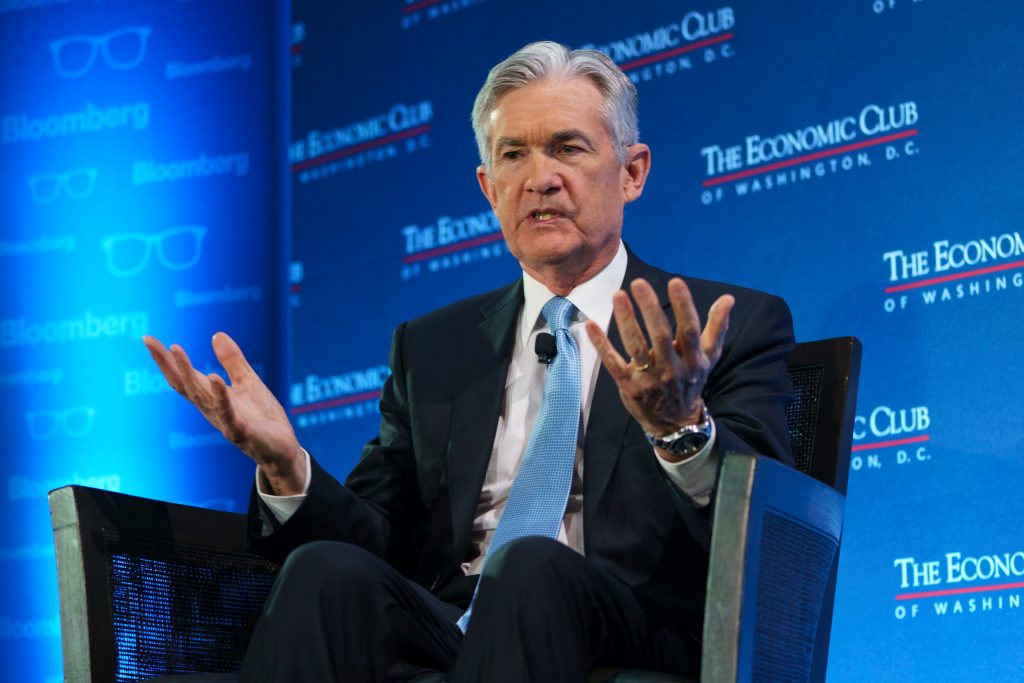- The Federal Reserve's biggest rate hike since 1994 makes a US recession more likely, Morgan Stanley's Mike Wilson said.
- "You're bringing rate hikes forward even faster … the Fed is hiking into a slowdown," Wilson told CNBC.
- The one thing the market got wrong this year is rates went up even faster than expected, the strategist said.
The Federal Reserve has just delivered its largest rate hike since 1994, and that heightens the risk the US will eventually slip into recession, according to Morgan Stanley's chief US equity strategist.
Mike Wilson believes the 75 basis point increase in rates won't provide an immediate payoff in central bank's efforts to tame inflation, which soared to a four-decade high of 8.6% in May.
"It doesn't really change our intermediate-term view, unfortunately. I don't think this is going to solve the inflation problem overnight," Wilson told CNBC's "Closing Bell" on Wednesday.
"It also raises the risk of a recession, because you're bringing rate hikes forward even faster. The Fed is hiking into a slowdown, and they don't really have a lot of options."
A recession is typically defined as two consecutive quarters of negative economic growth. Rising interest rates tend to hurt both stocks and growth, because they curb consumer spending.
On Wall Street, Wilson has earned a reputation after correctly calling the last three stock market crashes. He did note the market has significantly underestimated how aggressive the Fed would be.
"The one thing we've gotten wrong this year is rates went up even faster than we expected," he said.
He pointed to multiples and price-to-earnings ratios — both gauges of a stock's value — as indications of growth pressures.
"The surprising thing to us, as rates have gone up, multiples have gone down. But the P/E is lower today than it was at year-end. The risk to growth [is] higher."
Assuming the Fed does manage a soft landing, the Morgan Stanley strategist said the S&P 500 could slide another 10% from its current level, to as low as 3,400 points. The benchmark US stock index closed at 3,790 Wednesday.
"We're very explicit about this 3,400, maybe 3,500 level that's based on our valuation work, that assumes no recession but some degradation in earnings," he told CNBC.
Wilson said the tech-heavy Nasdaq 100 stock market is likely set for a similar slide.
"The Nasdaq is down more, because it was more extended on valuation at the beginning of the year," he said. "As we've been saying all year, the technology sector has more risk of a payback in demand than other sectors."
Wilson isn't the only Wall Street strategist to sound the alarm about a US recession in the wake of the Fed's interest rate decision. Among them, Wells Fargo economists said they expect the US to tip into a recession by 2023.
Meanwhile, Principal Global Investors said the Fed's updated economic forecasts suggested a recession might be the only way to bring inflation under control.
"The Fed let go of its 'immaculate disinflation' scenario, instead admitting that unemployment is likely to rise if they have any hope of bringing inflation lower," its chief strategist, Seema Shah, said in a note.
"While a recession is not explicitly in their forecast, the 0.5% increase in unemployment rate by end-2024 is certainly suggestive of recession."
